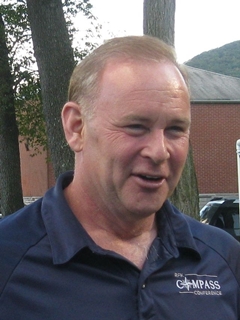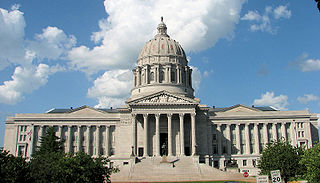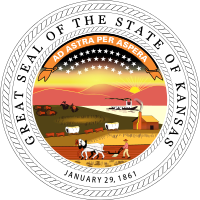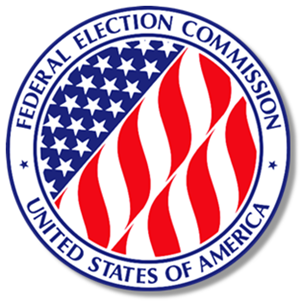February 6, 2015 •
News You Can Use Digest – February 6, 2015
National: National Donors Pick Winners in State Elections Center for Public Integrity – Ben Weider | Published: 1/28/2015 National political organizations, such as the Republican Governors Association, gave significantly more money than political parties, unions, corporations, or wealthy individuals to influence […]

National:
National Donors Pick Winners in State Elections
Center for Public Integrity – Ben Weider | Published: 1/28/2015
National political organizations, such as the Republican Governors Association, gave significantly more money than political parties, unions, corporations, or wealthy individuals to influence state-level campaigns. The contributions went beyond races for governor. The funds made their way into lower-ballot contests such as attorney general, Supreme Court justice, and state legislator. The national groups also cropped up on the lists of the biggest donors in most states, outgiving homegrown political players in a sign that all politics may now be national. They also were more successful in backing winners than most donors, becoming the de facto kingmakers of state politics.
Federal:
Measles Prove Delicate Issue to GOP Field
New York Times – Jeremy Peters and Richard Pérez-Peña | Published: 2/2/2015
As the latest measles outbreak raises alarm, and parents who have decided not to vaccinate their children face growing pressure to do so, the national debate is forcing the Republican Party’s 2016 presidential hopefuls to confront questions about whether it is in the public’s interest to allow parents to decide for themselves. The controversy is a twist on an old problem for the GOP: how to approach matters that have largely been settled among scientists but are not widely accepted by conservatives. It is a dance Republican candidates often do when they hedge their answers about whether evolution should be taught in schools, for example.
The Surprising Power of Blue-State Republicans
New York Times – Nate Cohn | Published: 1/30/2015
How does the Republican Party, seemingly dominated by the South, energized by the tea party, and elected by conservative voters also consistently support relatively moderate presidential nominees such as John McCain and Mitt Romney? The answer is the blue-state Republicans. They make it far harder for a very conservative candidate to win the GOP nomination than the party’s reputation suggests. They also give a candidate who might seem somewhat out of touch with today’s Republican Party, like Jeb Bush, a larger base of potential support than is commonly thought.
From the States and Municipalities:
California – Oil Industry Doubled Spending on Lobbying in California Last Year
Sacramento Bee – Laurel Rosenhall | Published: 2/4/2015
The oil industry nearly doubled its spending on lobbying in California last year as the January 1, 2015, date approached for gasoline to be included in the state’s cap-and-trade program. That increase in expenditures was part of a larger trend in 2014 that saw interest groups spend more on lobbying in California than ever before. Overall, spending on lobbying was up four percent, with interest groups pouring a combined $293.7 million into lobbying state government.
Massachusetts – State Senator’s Lavish Gift Raises Concerns on Ethics
Boston Globe – Andrea Estes | Published: 1/30/2015
Massachusetts Sen. Brian Joyce is under scrutiny for the expensive sunglasses he gave out as gifts to his colleagues during the holidays. Joyce gave everyone in the 40-member state Senate gold-plated designer sunglasses, customized with each senator’s name engraved on the side. But the glasses that retail for more than $200 may violate state ethics rules for the cut-rate price Joyce paid for them. He originally negotiated a price of just $50 per pair from the manufacturer. Politicians, according to state ethics rules, are not supposed to receive discounts not available to others.
Missouri – Ethics Amendment Sponsor Sees Little Chance for Effective Action by Lawmakers
Columbia Daily Tribune – Rudi Keller | Published: 2/3/2015
Debates over lobbying and campaign finance rules have a much higher profile this year in Missouri. Leaders in both chambers have said the issue is a top priority, but they differ on how far lawmakers must go. Some members want to ban lobbyist gifts, some want limits, and others want faster, more precise reporting. Sen. Rob Schaaf said a proposed constitutional amendment to ban lobbyist gifts and impose limits on political contributions will serve as the template for an initiative petition drive if lawmakers do not put it on the ballot themselves.
Missouri – Missouri Lawmakers’ Steady Shift to Lobbying Raises Concerns with Critics
Kansas City Star – Jason Hancock | Published: 2/1/2015
Registered lobbyists outnumber lawmakers in Jefferson City by almost five-to-one. Over the last decade, as voter-imposed term limits began driving elected officials out of office, lobbyists’ ranks have swelled with former legislators and staff cashing in on their expertise and connections. To critics, that erodes public trust and runs the risk of corrupting policy. It fuels a perception that lawmakers are casting votes to curry favor with potential future employers. Congress and at least 32 states have laws in place limiting when legislators can return to lobby their former colleagues; Missouri is not among them.
Nevada – When Do Lawmakers’ Day Jobs Become Conflicts of Interest?
Las Vegas Sun – Kyle Roerink | Published: 2/3/2015
Nevada’s citizen Legislature will inherently pose potential conflicts in a state where just a few industries – gaming, mining, insurance, and construction – have hefty influence. Nevada is one of 16 part-time Legislatures that offer low pay and small staffs, forcing most lawmakers to have full-time employment. Those day jobs, for many elected to office, are in fields overlapping with politics. State law requires lawmakers to recuse themselves from participating in debates if they have significant financial interests or received substantial gifts that could be perceived as swaying their judgment. Nevada’s ethics commission does not have jurisdiction in such matters. Only lawmakers can choose to address those issues within the Legislature’s ethics committees.
New Jersey – Christie’s Overseas Travel Funded by Firms That Do Business with N.J.
Bergen Record – Shawn Boburg and Hugh Morley | Published: 1/31/2015
Created at the behest of Gov. Chris Christie in 2010 to promote business and job growth in the state, Choose New Jersey funded Christie’s recent trip to England with backing from public utilities, labor unions, law firms, and contractors, some that have received multimillion-dollar contracts and tax breaks from the state. The donors also regularly send lobbyists to Trenton to advance their business interests in front of key lawmakers, including the governor. The arrangement is legal, but watchdog groups say it raises questions about whether Christie is benefiting politically from the largesse of firms that have a financial stake in decisions made at the Capitol.
New York – 6 Days That Felled Sheldon Silver, the Speaker Who Ruled Albany for Decades
New York Times – Jesse McKinley, Thomas Kaplan, Susanne Craig, and William Rashbaum | Published: 1/28/2015
The six-day, slow-motion toppling of New York Assembly Speaker Sheldon Silver began with his arrest on January 22 and culminated when Democrats said Silver would be replaced for the betterment of a chamber repeatedly buffeted by prosecutions, convictions, and sexual harassment scandals. Interviews with more than a dozen legislators indicate it was a idealistic new wave of Assembly members who helped galvanize opposition to Silver, prodded a loyal old guard, and cleared the way for an election of a new speaker and, they hoped, a new start.
Oregon – Cylvia Hayes Scandal: Kitzhaber associates helped create jobs for her that had Oregon influence in mind
Portland Oregonian – Nick Budnick and Laura Gunderson | Published: 2/3/2015
Associates of Oregon Gov. John Kitzhaber helped to create jobs for fiancée and first lady Cylvia Hayes, work that influenced state policy on energy. Hayes’ calendar shows she held the paid posts simultaneously as she served as an unpaid energy adviser inside Kitzhaber’s office. One of the jobs paid her $5,000 for five months after Kitzhaber started his third term. The second was a fellowship that paid $118,000 over two years. The Portland Oregonian reported both jobs involved foundations and organizations with direct interest in state policy making.
Pennsylvania – Former Pennsylvania Treasurer to Plead Guilty to Extortion in Deal with Federal Prosecutors
Greenfield Daily Reporter – Marc Levy (Associated Press) | Published: 2/2/2015
Former Pennsylvania Treasurer Rob McCord could face as many as 40 years in prison and be fined up to $500,000 if he follows through on a tentative plea agreement to resolve charges he tried to extort campaign contributions. McCord is accused of using threats to squeeze contributions from a law firm and a property management company to help finance his failed 2014 campaign for governor. McCord had been midway through his second term as treasurer when he resigned on January 30.
Virginia – Ethics Reforms Advance in Virginia Legislature
Washington Post – Rachel Weiner and Jenna Portnoy | Published: 2/5/2015
A Virginia House subcommittee and a state Senate committee advanced legislation aimed at strengthening the state’s ethics laws. The bills would reduce the current $250 cap on gifts to public officials to $100 and remove the distinction between tangible and intangible gifts such as travel, meals, and entertainment. But Republicans who control the General Assembly remain at odds with Gov. Terry McAuliffe over the best way for the state to monitor the rules on conflicts-of-interest.
Washington – Lawmakers Grouse about Free Meals Rule
Tacoma News Tribune – Jordan Schrader | Published: 1/29/2015
Washington lawmakers are complaining about a new limit of 12 free meals they are allowed to take from lobbyists, saying it does not just impugn their integrity, it is also confusing. “All of us have tried to navigate the maze of what is [considered] a meal,” Sen. Marko Liias said during hearings on the subject. Sen. Brian Hatfield’s bill would apply the limit only to meals worth more than $50. Many meals that are drawing questions would fall below that standard, which is already the threshold for what lawmakers are supposed to disclose on financial forms.
Wisconsin – Federal Judge’s Judgment Takes John Doe Probe off Life Support
WisconsinReporter.com – M.D. Kittle | Published: 2/1/2015
A federal judge ordered state election officials to post links to decisions striking down swaths of Wisconsin’s campaign finance laws on its website. A federal appeals court struck down state laws banning independent political spending by corporations to support or oppose candidates and capping corporations’ political donations. The court also struck down Government Accountability Board (GAB) rules that imposed reporting requirements for groups that make independent political expenditures. U.S. District Court Judge Charles Clevert issued a permanent injunction codifying the appellate ruling. The injunction orders the GAB to post links to the court decisions and keep them active for four years.
 State and Federal Communications produces a weekly summary of national news, offering more than 80 articles per week focused on ethics, lobbying, and campaign finance.
State and Federal Communications produces a weekly summary of national news, offering more than 80 articles per week focused on ethics, lobbying, and campaign finance.
February 5, 2015 •
Facing Federal Charges, Pennsylvania Treasurer Steps Down
Rob McCord, Pennsylvania’s state treasurer, has resigned amid a federal investigation. After serving for six years in the elected position, McCord announced plans to plead guilty to charges of using his office to threaten potential campaign donors hoping to continue […]
 Rob McCord, Pennsylvania’s state treasurer, has resigned amid a federal investigation.
Rob McCord, Pennsylvania’s state treasurer, has resigned amid a federal investigation.
After serving for six years in the elected position, McCord announced plans to plead guilty to charges of using his office to threaten potential campaign donors hoping to continue doing business with the commonwealth. It is unknown exactly what the charges will be, as is whether or not McCord will face jail time.
Gov. Tom Wolf will now nominate someone to serve the remaining two years of McCord’s term.
Photo of Rob McCord by Ruhrfisch on Wikimedia Commons.
February 5, 2015 •
Thursday News Roundup
Lobbying “Top Frankfort Lobbyists Make Big Money … VERY Big” by Tom Loftus for Louisville Courier-Journal Missouri: “Ethics Amendment Sponsor Sees Little Chance for Effective Action by Lawmakers” by Rudi Keller for Columbia Daily Tribune Campaign Finance “Capitalizing on a […]
 Lobbying
Lobbying
“Top Frankfort Lobbyists Make Big Money … VERY Big” by Tom Loftus for Louisville Courier-Journal
Missouri: “Ethics Amendment Sponsor Sees Little Chance for Effective Action by Lawmakers” by Rudi Keller for Columbia Daily Tribune
Campaign Finance
“Capitalizing on a Political Contribution Cap Hike” by Carrie Levine for Center for Public Integrity
California: “San Diego County Supervisors Put Caps on Campaign Spending” by City News Service for KPBS
Ethics
“Obama Administration Seeks to Negotiate Medicare Drug Prices” by David Morgan for Reuters
Nevada: “When Do Lawmakers’ Day Jobs Become Conflicts of Interest?” by Kyle Roerink for Las Vegas Sun
New York: “State Ethics Panel Seeks More Clout, Leeway” by Casey Seiler for Albany Times Union
New York: “New York City Councilman Arrested on Corruption Charges” by Nikita Stewart for New York Times
Oregon: “Cylvia Hayes Scandal: Kitzhaber associates helped create jobs for her that had Oregon influence in mind” by Nick Budnick and Laura Gunderson for Portland Oregonian
Pennsylvania: “After Rapid Rise, Pennsylvania Attorney General Faces Sharp Fall” by Jennifer Steinhauer for New York Times
Elections
“The Surprising Power of Blue-State Republicans” by Nate Cohn for New York Times
February 4, 2015 •
Senate Bill 2505 Takes Aim at New York Lobbying, Pay-to-Play
A bill introduced in the New York Senate would impose new reporting requirements on lobbyists and lobbyist employers, as well as limit political contributions from lobbyists and certain other persons. The bill also contains pay-to-play restrictions. Senate Bill 02505 requires […]
 A bill introduced in the New York Senate would impose new reporting requirements on lobbyists and lobbyist employers, as well as limit political contributions from lobbyists and certain other persons. The bill also contains pay-to-play restrictions.
A bill introduced in the New York Senate would impose new reporting requirements on lobbyists and lobbyist employers, as well as limit political contributions from lobbyists and certain other persons. The bill also contains pay-to-play restrictions.
Senate Bill 02505 requires lobbyists, certain business entities, persons with ownership interests or senior level management within such entities, and family members of any of the foregoing to file campaign finance reports when making contributions to the governor, lieutenant governor, attorney general, comptroller, and state legislators.
The bill further limits the amount of any contribution made to any of those offices or associated political committees. The bill requires lobbyists and lobbyist employers to disclose contributions to the governor, lieutenant governor, attorney general, comptroller, and state legislators on their periodic reports.
Senate Bill 02505 requires state contractors with contracts totaling more than $50,000 and persons who own more than 10 percent of any business entity having such a contract, senior management personnel in such a business entity, and family members of the foregoing persons to file campaign finance reports. The bill also limits contributions from such persons to the governor, lieutenant governor, attorney general, comptroller, and state legislators and affiliated political committees for the duration of the qualifying contract.
Senate Bill 02505 was referred to the Senate Committee on Finance on January 28, 2015.
February 4, 2015 •
Missouri House Speaker Bans Lobbyist Meals in Committee Meetings
Missouri House Speaker John Diehl will no longer allow food paid for by lobbyists in committee hearings. Although he made no formal change to House rules, Diehl believes his new policy will be followed because the committee chairmen serve at […]
 Missouri House Speaker John Diehl will no longer allow food paid for by lobbyists in committee hearings. Although he made no formal change to House rules, Diehl believes his new policy will be followed because the committee chairmen serve at his pleasure.
Missouri House Speaker John Diehl will no longer allow food paid for by lobbyists in committee hearings. Although he made no formal change to House rules, Diehl believes his new policy will be followed because the committee chairmen serve at his pleasure.
Last week, Diehl also banned House committees from meeting outside the Capitol in an effort to curb the practice of lobbyists providing catered meals to committee members as they consider legislation.
As Missouri ethics laws come under scrutiny, Diehl’s actions may be a step in the right direction.
Photo of the Missouri State Capitol by RebelAt on Wikimedia Commons.
February 4, 2015 •
Wednesday Government Relations News
Campaign Finance North Carolina: “Audit: Elections board spent nearly $1 million for nothing” by Craig Jarvis for Raleigh News & Observer Wisconsin: “Federal Judge’s Judgment Takes John Doe Probe off Life Support” by M.D. Kittle for WisconsinReporter.com Ethics “How Did […]

Campaign Finance
North Carolina: “Audit: Elections board spent nearly $1 million for nothing” by Craig Jarvis for Raleigh News & Observer
Wisconsin: “Federal Judge’s Judgment Takes John Doe Probe off Life Support” by M.D. Kittle for WisconsinReporter.com
Ethics
“How Did Politics Get So Personal?” by Thomas Edsall for New York Times
“How and Why Retired Politicians Get Lucrative Appointments on Corporate Boards” by Maxwell Palmer and Benjamin Schneer for Washington Post
California: “California’s Top Political Ethics Cop Resigns” by Laurel Rosenhall for Sacramento Bee
New York: “Pushing Ethics Reforms, Cuomo Wants Lawmakers to Reveal Income or Lose It” by Alexander Burns and Susanne Craig for New York Times
Rhode Island: “House Will Once Again Mull Two Proposals to Restore Ethics Commission’s Authority over State Lawmakers” by Jennifer Bogdon for Providence Journal
Elections
“Measles Prove Delicate Issue to GOP Field” by Jeremy Peters and Richard Pérez-Peña for New York Times
Legislative Issues
Nevada: “Assemblyman May Be Extortion Victim, Police Say” by Ray Hagar for Reno Gazette-Journal
New York: “Heastie Is Elected Speaker of New York Assembly” by Jesse McKinley for New York Times
February 3, 2015 •
Kansas Legislature Mulls Raising Registration Threshold for Lobbyists
A new bill could increase the expenditure threshold for lobbyist registration. House Bill 2082, attempting to account for inflation, would increase the current $100 threshold to $1,000. The current law has been in place since 1975. Proponents of the bill […]
 A new bill could increase the expenditure threshold for lobbyist registration. House Bill 2082, attempting to account for inflation, would increase the current $100 threshold to $1,000.
A new bill could increase the expenditure threshold for lobbyist registration. House Bill 2082, attempting to account for inflation, would increase the current $100 threshold to $1,000.
The current law has been in place since 1975.
Proponents of the bill believe it will only serve to protect private citizens from inadvertently breaking the law, while having no effect on industry lobbyists, who typically expend much larger sums.
Carol Williams, executive director of the Kansas Government Ethics Commission, presented the proposal to the House Elections Committee and was the only person to testify on the matter.
February 3, 2015 •
Illegal Compensation Agreement Nets Lobbyist Penalty from Connecticut Ethics Board
The Citizens Ethics Advisory Board has levied a $10,000 penalty against a lobbyist for accepting illegal contingency fees. Robert M. Silverberg had a contract with Clean Power Public of New Haven paying him 15 percent of the gross value of […]
 The Citizens Ethics Advisory Board has levied a $10,000 penalty against a lobbyist for accepting illegal contingency fees. Robert M. Silverberg had a contract with Clean Power Public of New Haven paying him 15 percent of the gross value of contracts he obtained from the state governments of Connecticut and Pennsylvania.
The Citizens Ethics Advisory Board has levied a $10,000 penalty against a lobbyist for accepting illegal contingency fees. Robert M. Silverberg had a contract with Clean Power Public of New Haven paying him 15 percent of the gross value of contracts he obtained from the state governments of Connecticut and Pennsylvania.
Silverberg did not disclose any administrative lobbying from January 2013 to January 2014, stating he was unaware his activities were subject to lobbying laws. He believed he was only engaging in sales activities.
The fine will be suspended pending Silverberg’s compliance with a consent order requiring him to attend annual training for five years and
February 3, 2015 •
Lobbyist Bundling Disclosure Threshold Increases to $17,600
On February 3, the Federal Election Commission (FEC) published its price index adjustments for expenditure limitations and lobbyist bundling disclosure threshold in the Federal Register. The lobbyist bundling disclosure threshold has increased to $17,600 for 2015 from $17,300 in 2014. […]
 On February 3, the Federal Election Commission (FEC) published its price index adjustments for expenditure limitations and lobbyist bundling disclosure threshold in the Federal Register. The lobbyist bundling disclosure threshold has increased to $17,600 for 2015 from $17,300 in 2014. This threshold amount is adjusted annually.
On February 3, the Federal Election Commission (FEC) published its price index adjustments for expenditure limitations and lobbyist bundling disclosure threshold in the Federal Register. The lobbyist bundling disclosure threshold has increased to $17,600 for 2015 from $17,300 in 2014. This threshold amount is adjusted annually.
Federal law requires authorized committees of federal candidates, leadership political action committees (PACs), and political party committees to disclose contributions bundled by lobbyists and lobbyists’ PACs.
February 3, 2015 •
FEC Adjusts Federal Contribution Limits for the 2015-2016 Election Cycle
The Federal Election Commission (FEC) has published the 2015-2016 election cycle contribution limits, which have been indexed for inflation. As required by the Bipartisan Campaign Reform Act of 2002, the FEC must adjust certain contribution limits every two years. The […]
 The Federal Election Commission (FEC) has published the 2015-2016 election cycle contribution limits, which have been indexed for inflation. As required by the Bipartisan Campaign Reform Act of 2002, the FEC must adjust certain contribution limits every two years.
The Federal Election Commission (FEC) has published the 2015-2016 election cycle contribution limits, which have been indexed for inflation. As required by the Bipartisan Campaign Reform Act of 2002, the FEC must adjust certain contribution limits every two years.
The individual and nonmulticandidate PAC contribution limit to federal candidates has increased from $2,600 to $2,700 for both primary and general elections, allowing for a total of $5,400 for a federal candidate.
The limits on contributions by individuals to national party committees has increased from $32,400 to $33,400 per calendar year. Individuals may now contribute $100,200 per calendar year to committees of a national political party for presidential nominating conventions, to committees of a national political party for preparation for and the conduct of election recounts and contests and other legal proceedings, and to committees of a national political party for the construction, purchase, renovation, operation, and furnishing of one or more buildings for party headquarters.
February 3, 2015 •
Changes Scheduled for Delaware’s Online Lobbyist Filing System
The electronic filing system of the Public Integrity Commission, the Public Integrity Reporting System, is being moved. As a result of the change, filers will be required to update their passwords after the system is moved. The system will be […]
 The electronic filing system of the Public Integrity Commission, the Public Integrity Reporting System, is being moved. As a result of the change, filers will be required to update their passwords after the system is moved.
The electronic filing system of the Public Integrity Commission, the Public Integrity Reporting System, is being moved. As a result of the change, filers will be required to update their passwords after the system is moved.
The system will be down for the transfer from 11:00 p.m. on February 7 to 6:00 a.m. on February 9.
The first time a filer logs in after the system is moved, he or she will be prompted to create a new password. The commission has not released the web domain of the new system but is scheduled to do so in the near future.
February 3, 2015 •
Tuesday Lobbying and Campaign Finance News Update
Lobbying Missouri: “Missouri Lawmakers’ Steady Shift to Lobbying Raises Concerns with Critics” by Jason Hancock for Kansas City Star New Jersey: “Christie’s Overseas Travel Funded by Firms That Do Business with N.J.” by Shawn Boburg and Hugh Morley for Bergen […]
 Lobbying
Lobbying
Missouri: “Missouri Lawmakers’ Steady Shift to Lobbying Raises Concerns with Critics” by Jason Hancock for Kansas City Star
New Jersey: “Christie’s Overseas Travel Funded by Firms That Do Business with N.J.” by Shawn Boburg and Hugh Morley for Bergen Record
Campaign Finance
Montana: “State Legislative Panels Reject Campaign Finance Reform Bills” by Charles Johnson for The Missoulian
Ethics
Indiana: “Indiana Gov. Pence Walks Back State-Run Media Site” by Danielle Hayes for UPI.com
Kansas: “Kansas House Rejects Amendment to Address Private E-mail Loophole” by Bryan Lowry for Wichita Eagle
New York: “Speaker Candidate Drew Ethics Panel’s Notice” by Susanne Craig and Thomas Kaplan for New York Times
Pennsylvania: “Pennsylvania Treasurer McCord to Plead Guilty in Campaign Finance Case; Resigns Immediately” by The Associated Press for Greenfield Daily Reporter
Wisconsin: “Wisconsin’s Treasurer Wants to Cut Needless Workers, Starting With Himself” by Julie Bosman for New York Times
Elections
Massachusetts: “Statute Against Lying in Campaign Ads Faces Legal Test” by Stephanie Ebbert for Boston Globe
Legislative Issues
Texas: “Texas Lawmaker Demands Muslim Visitors Take Loyalty Oath” by Adam Lerner for Politico
February 2, 2015 •
Ask the Experts – Indexing of Contribution Limits
Q. With the start of the New Year, are there any changes I should be aware of in political contribution limits? A. Aside from changes as a result of new legislation, the most common adjustment of contribution limits is indexing […]

Q. With the start of the New Year, are there any changes I should be aware of in political contribution limits?
A. Aside from changes as a result of new legislation, the most common adjustment of contribution limits is indexing for inflation. Typically, adjustments are made biennially for inflation according to the Consumer Price Index. The Consumer Price Index is calculated by the United States Department of Labor, Bureau of Labor Statistics.
This concept was addressed by the United States Supreme Court in Buckley v. Valeo (1976). The court allowed federal contribution limits to be adjusted upwards at the beginning of each calendar year by the average percentage rise in the Consumer Price Index for the 12 preceding months.
The principal behind this is quite simple: it is based on the recognition that the cost of campaigning steadily increases each year based on the increase to cost of living. Campaign fliers, mailers, yard signs, and media buys do not cost the same in 2013 as they do in 2015.
This year, California adjusted its contribution limits for the 2015-2016 biennium. In doing so, corporate contributions limits for general assembly candidates increased from $4,100 per election to $4,200. Washington adjusts its limits in even-numbered years, so the 2014 corporate contribution limit of $950 per election for state legislative candidates will remain the same for 2015. Illinois adjusts its limits in odd-numbered years, so the 2014 corporate contribution limit of $10,500 per election cycle for legislative candidates will increase to $10,800.
Finally, the indexing of contribution limits usually results from amendments to a state’s administrative code as opposed to its statute. In order to ensure compliance, a contributor should review both of these sources.
You can directly submit questions for this feature, and we will select those most appropriate and answer them here. Send your questions to: experts@stateandfed.com.
(We are always available to answer questions from clients that are specific to your needs, and we encourage you to continue to call or e-mail us with questions about your particular company or organization. As always, we will confidentially and directly provide answers or information you need.) Our replies to your questions are not legal advice. Instead, these replies represent our analysis of laws, rules, and regulations.
February 2, 2015 •
Monday News Roundup
Lobbying Missouri: “Missouri House to Halt Committee Meetings at Country Clubs and Restaurants” by Kevin McDermott for St. Louis Post-Dispatch Washington: “Lawmakers Grouse about Free Meals Rule” by Jordan Schrader for Tacoma News Tribune Campaign Finance “National Donors Pick Winners […]
 Lobbying
Lobbying
Missouri: “Missouri House to Halt Committee Meetings at Country Clubs and Restaurants” by Kevin McDermott for St. Louis Post-Dispatch
Washington: “Lawmakers Grouse about Free Meals Rule” by Jordan Schrader for Tacoma News Tribune
Campaign Finance
“National Donors Pick Winners in State Elections” by Ben Weider for Center for Public Integrity
New Jersey: “Auditor Finds No Pay-to-Play Conflict in N.J. Pension Investment” by Andrew Seidman for Philadelphia Inquirer
Ethics
“Amid Ethics Concerns, House Energy Chairman Drops Bill” by Tony Cook for Indianapolis Star
Massachusetts: “State Senator’s Lavish Gift Raises Concerns on Ethics” by Andrea Estes for Boston Globe
New York: “6 Days That Felled Sheldon Silver, the Speaker Who Ruled Albany for Decades” by Jesse McKinley, Thomas Kaplan, Susanne Craig, and William Rashbaum for New York Times
Elections
“Mitt Romney Decides against Running for President Again in 2016” by Philip Rucker and Dan Balz for Washington Post
State and Federal Communications, Inc. provides research and consulting services for government relations professionals on lobbying laws, procurement lobbying laws, political contribution laws in the United States and Canada. Learn more by visiting stateandfed.com.

